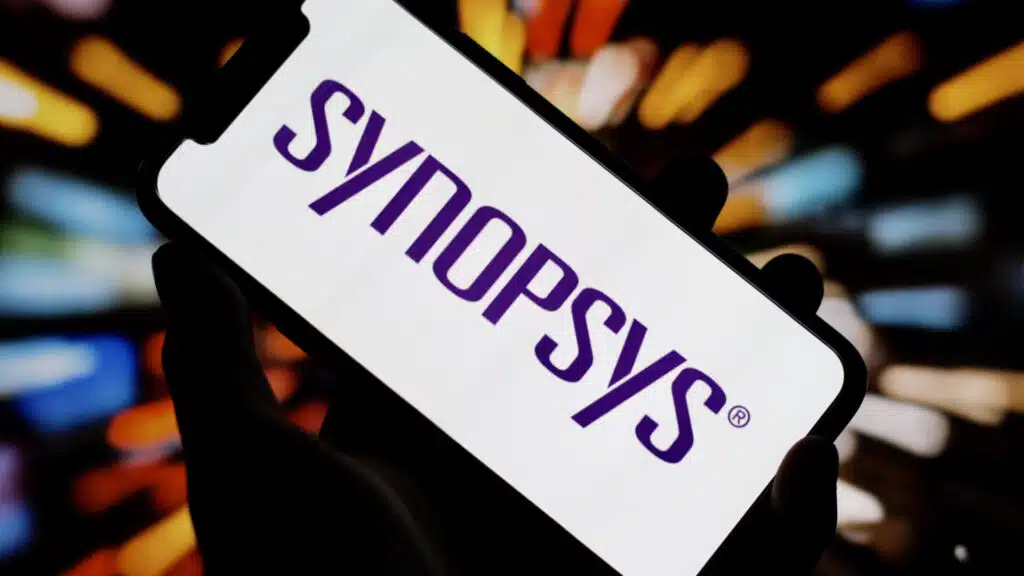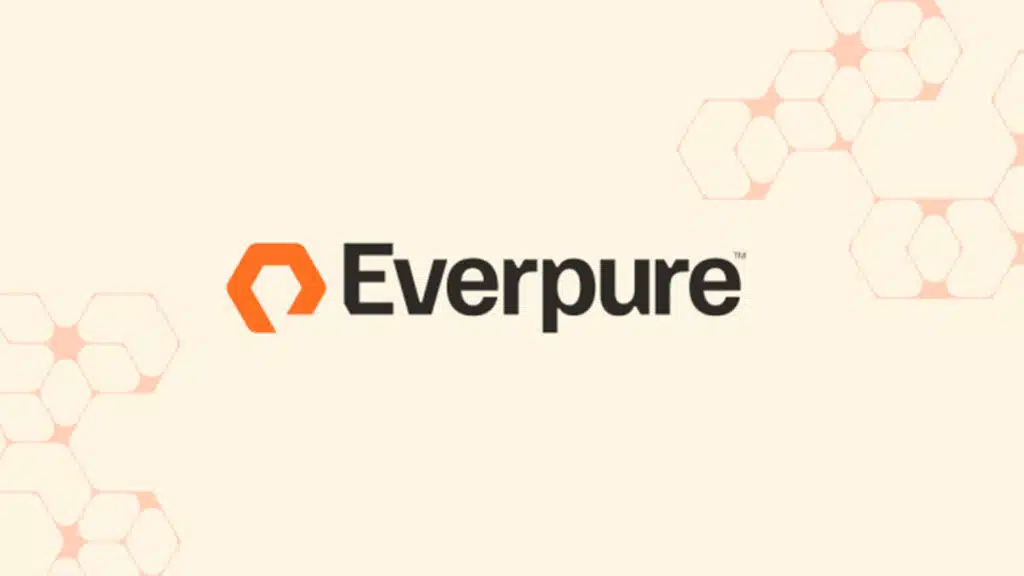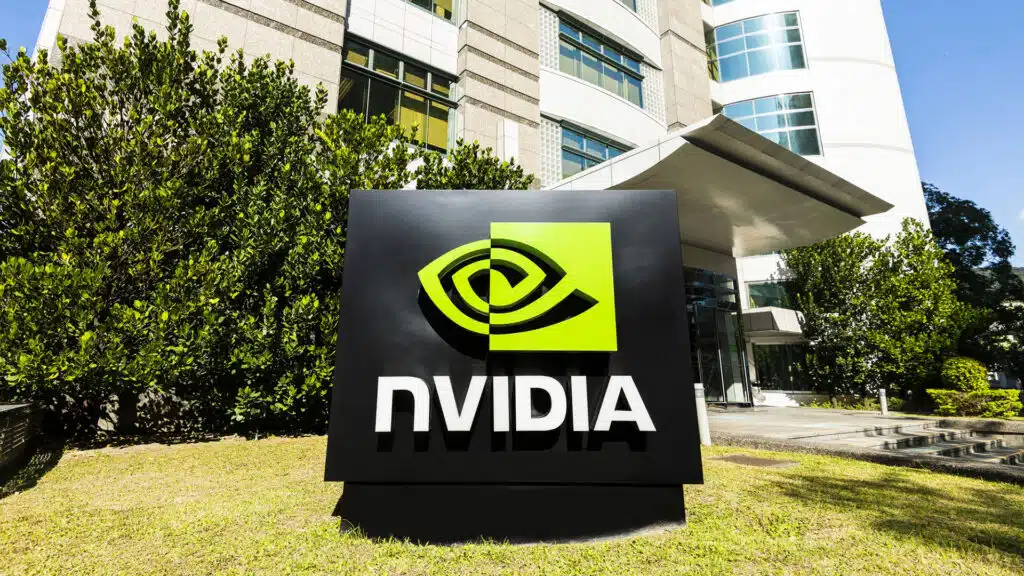In this episode of Live! From the Show Floor at SHARE New Orleans 2023, I talked with Lisa Schwab, COO and SVP of Sales at SVA Software, about how SVA Software impacts the mainframe industry and why a company would work with them. We also covered what makes their offering unique. Lisa shared some real-life examples with SVA Software’s most recent success story and the most exciting project for the technical team recently.
Learn more about SVA Software.
You can view the video of their conversation here:
Or grab the audio on your streaming platform of choice here:
If you’ve not yet subscribed to the Futurum Tech Webcast, hit the ‘subscribe’ button while you’re there and you won’t miss an episode.
Disclaimer: The Futurum Tech Webcast is for information and entertainment purposes only. Over the course of this webcast, we may talk about companies that are publicly traded and we may even reference that fact and their equity share price, but please do not take anything that we say as a recommendation about what you should do with your investment dollars. We are not investment advisors and we do not ask that you treat us as such.
Transcript:
Steven Dickens: Hello and welcome. My name’s Steven Dickens and you’re joining us here for a Futurum Live from the Show Floor at SHARE, New Orleans. I’m joined by Lisa Schwab from SVA.
Lisa Schwab: Hi.
Steven Dickens: Hey Lisa. Welcome to the show.
Lisa Schwab: Thank you very much.
Steven Dickens: So, let’s get started, let’s get the listeners and viewers orientated. Tell us a little bit about your role.
Lisa Schwab: Well, I’m the COO and Senior Vice President Sales at SVA Software Inc. Which is a hundred percent subsidiary of SVA GMBH, headquartered in Germany. And I’m here to grow the business, grow the team, and enjoy ourselves.
Steven Dickens: Fantastic. So SVA, tell us a little bit about why a company in the mainframe space would want to work with SVA, where do you guys fit? We’re obviously here at SHARE, there’s a lot of other vendors, where do you fit in that space?
Lisa Schwab: SVA is the biggest privately held system integrator. As I said, headquartered in Germany, right now we’re employing 2,800 people all over the world.
Steven Dickens: I think those numbers would surprise people.
Lisa Schwab: Absolutely, yes. We are a little smaller here in the US. However, our corporation is pretty significant these days. And what we do, we pretty much provide everything from hardware, to software, to service, and our mission is to empower your infrastructure. What does that mean? We really have the tools, the expertise and the service to dig deep in every single layer of your infrastructure. No matter if we talk storage, if we talk SAN, if we talk obviously the mainframe too. And it’s just this variety and this really broad expertise that we bring to the market, which I think is what makes us very unique and which makes it a very fun company to work for.
Steven Dickens: So tell me a little bit more about the SVA software piece. Obviously a big system integrator in Germany. Tell us a little bit more about the SVA software piece.
Lisa Schwab: Well, I think what makes us here in the United States very unique is that we don’t only sell a piece of software, but we have a service around it. And just for you to get some perspective, SVA as a whole employs more than a hundred mainframe experts, which is very significant.
Steven Dickens: I think that number would surprise people.
Lisa Schwab: You know what? It surprised me too when I first heard it. Because I hear so much about the lack of talent, the lack of expertise, and we really do have it. And that makes our offering very unique. I mean, there are wonderful companies out there who have very beautiful pieces of software that provide data insights and everything. But as I said, with that lack of talent, companies just don’t have the resources to look at all the data, to make sense of all of the data. And that is why we’re here for. Our engagement always comes with a service part, where our experts meet with you biweekly. They look at the data that you’ve provided first very carefully and give you the recommendations that you need. They do the analysis in the background and then we understand ourselves as an extended team to your company, really help you making sense out of everything and then take the appropriate actions.
Steven Dickens: And I think from our conversations and our briefings, that’s the difference for me. That as you say, there’s tools out there that you can go and buy from fantastic vendors, many of them here at the show.
Lisa Schwab: Of course, of course, yeah.
Steven Dickens: But that’s a software experience. What you guys bring to the market for me is not only that software, but the ability to engage with a knowledgeable team.
Lisa Schwab: Correct. Correct.
Steven Dickens: Be able to talk about the results. Be able to get those next best actions. What should you be doing? How should you be thinking about planning?
Lisa Schwab: Correct. Correct.
Steven Dickens: Really a lot there to be thinking about.
Lisa Schwab: Correct. I consider it more as a service offering. And we use our own software, it’s called ZWR, it’s the Z Workload Reporter, to help digging very deep into the system. But what really makes it unique is that expertise that we are bringing to the table. We don’t leave you alone, we basically hold hands with our customers at least every two weeks, and just help them to take the appropriate actions.
Steven Dickens: So you talked there about holding hands with customers, and I think that’s crucial. That’s the differentiation I’ve seen. Maybe give us some examples, give us some thoughts there of some, maybe you can’t mention names specifically of customers, but some of those examples of that collaboration. I think that’s going to be key for people who are maybe new to looking at SVA, understanding some stories around how that collaboration works.
Lisa Schwab: Yeah. Well, just recently we onboarded a new customer. And how an engagement typically starts is with a health check. So a customer provides SMF data, they upload it to the cloud because CWR is a cloud-based reporting portal. So they upload it, and then we look at the data, and meet for the first time. And our team immediately saw that their memory was dangerously high usage of memory. And they were in danger that the system shuts down unplanned. And that is what you want to avoid, let me say that.
Steven Dickens: Worst case scenario.
Lisa Schwab: And just within two days we came up with a report or a script, however you want to name it, to find out where that memory shortage was coming from, what was actually using all that memory.
Steven Dickens: So, it wasn’t just the reporting, you were able to suggest action?
Lisa Schwab: Correct. And we added this report to the 720 or whatever predefined reports that are already in ZWR. And what I want to make sure that you understand, this software grows as we speak. However, I don’t want to brag about us identifying a memory shortage because I’m pretty sure many others can.
Steven Dickens: But that was vital for that customer though, for sure, I would imagine?
Lisa Schwab: Yeah, absolutely it was. And they definitely know for sure that they have to upgrade the memory at a certain point. But it takes some time. And in the meantime with that report, that they can constantly run our script again, however you want to name it. They have that peace of mind that they know where their memory usage is coming from and they can shut down the applications or they just give it less memory, like a DB2 testing, whatever it is. They can better allocate their memory and have that peace of mind so that the mainframe won’t shut down.
Steven Dickens: And I think that speaks to the value of SVA, it’s not just the software.
Lisa Schwab: Exactly right.
Steven Dickens: It’s then augmented with the services component to be able to go, “We’ve seen something from the report, this is what we recommend. It’s vital that you take a next step.”
Lisa Schwab: Correct, correct, correct. And I’m super proud that we just recently hired a mainframe expert from our headquarters in Germany. He just relocated to the United States. And he is the one that came up with most of those reports. He is the super brain behind all of this. And he was the one obviously that just came up with this script or report for this particular customer overnight. And I was like, “Yeah, I know where this is coming from.” It was a very, very fun and also enjoyable experience. The customer was more than happy. And as I said, it was super early in the engagement, so they were like, “Yep, I think we did the right thing here.”
Steven Dickens: That collaboration’s showing value straight away. If you can make that within a couple of days, then that’s fantastic.
Lisa Schwab: Days, yeah. Correct.
Steven Dickens: So Lisa, it sounds like you’ve got a really fantastic team, over a hundred people that you mentioned. I think that would surprise some people at the show to talk about the scale and breadth. What’s that team enjoying doing? What are they enjoying working on? You run a fun team and we always have a fun interaction.
Lisa Schwab: Yeah, we do.
Steven Dickens: So I think that’s baked into your culture. What’s that team enjoying working on right now?
Lisa Schwab: That’s a good question. But I think, and I will speak for them, okay, I think they enjoy most when customers really engage in those biweekly meetings. When they’re having fun together.
Steven Dickens: That collaboration we talked about.
Lisa Schwab: Exactly. So I think that was just last week, they were identifying a spike. And they sat together with a customer and it turned out they were running a very big marketing campaign, and they were sending emails to I think 400,000 or 500,000 customers. So pretty significant amount of emails. And this email contained a link to the mainframe. And as they were targeting a very specific age group, let me just say, they all clicked on it at the very same time, which caused super low latency. And you can tell there was this little kind of circle that just doesn’t stop and it gets mega annoying. So what happened? People left, they never engaged with the marketing campaign.
Steven Dickens: Because the experience wasn’t what they were looking-
Lisa Schwab: It was poor, there was no experience, they never got to the point. And they could tell because they didn’t generate any new business opportunities because people were just not engaging with the marketing campaign.
Steven Dickens: They were clicking through but not taking-
Lisa Schwab: Nothing happened. Exactly. So what we identified is it was due to the CPU cycle that could have been uploaded to an encryption card. However, guess what? The encryption card wasn’t configured properly. And that was just that experience. “Okay, guys, we can help here. We can provide the insights and we can help you also generating more business with appropriate actions on the mainframe.”
And again, here I want to emphasize the collaboration between our team and their team, talking about the effects and results and the business impacts of a marketing campaign. Because it’s all, I mean, the mainframe is key for everything, right?
Steven Dickens: Yeah, for sure. Especially when you’re operating at that type of scale of hundreds of thousands of email messages.
Lisa Schwab: Correct, correct. Yeah, the hourglass was definitely very annoying for everybody out there.
Steven Dickens: Yeah, I can imagine, that’s not the customer experience you want people to be having.
Lisa Schwab: No, not at all.
Steven Dickens: So we’re here at SHARE, what are those three key takeaways that people should be thinking about, if they stop by your booth, what should people be looking for?
Lisa Schwab: So definitely understand the size of SVA Software. We are a very significant player in the market. And we have the resources and expertise that are not visible at first, but they’re all in the background doing their thing and they do great. The second is really the service, that this is our differentiator. The software, yes, it’s awesome, I like it, I like the look, I like the feel of it. But what makes us absolutely unique is that we are an extended team to your team. And then the third is I just enjoy networking every time I come here.
Steven Dickens: You’ve got yourself the funnest booth I think.
Lisa Schwab: Well, last year, this year it’s much better I think.
Steven Dickens: You won my best in show last year.
Lisa Schwab: I know. Thank you very much for that award though. It’s looking better this year or this time. And I just enjoy the networking. And the more often I come, the more often I run into people that I know and have a good relationship. So very much appreciate that. I’m excited for the next couple of days. And it’s going to be a blast.
Steven Dickens: Fantastic. Well, thank you for joining us on the show.
Lisa Schwab: Thank you, Steven.
Steven Dickens: Thank you very much for watching. This is a Futurum Live from the Show Floor at SHARE, New Orleans. Please click and subscribe. And we’ll see you on the next episode.
Author Information
Steven engages with the world’s largest technology brands to explore new operating models and how they drive innovation and competitive edge.












